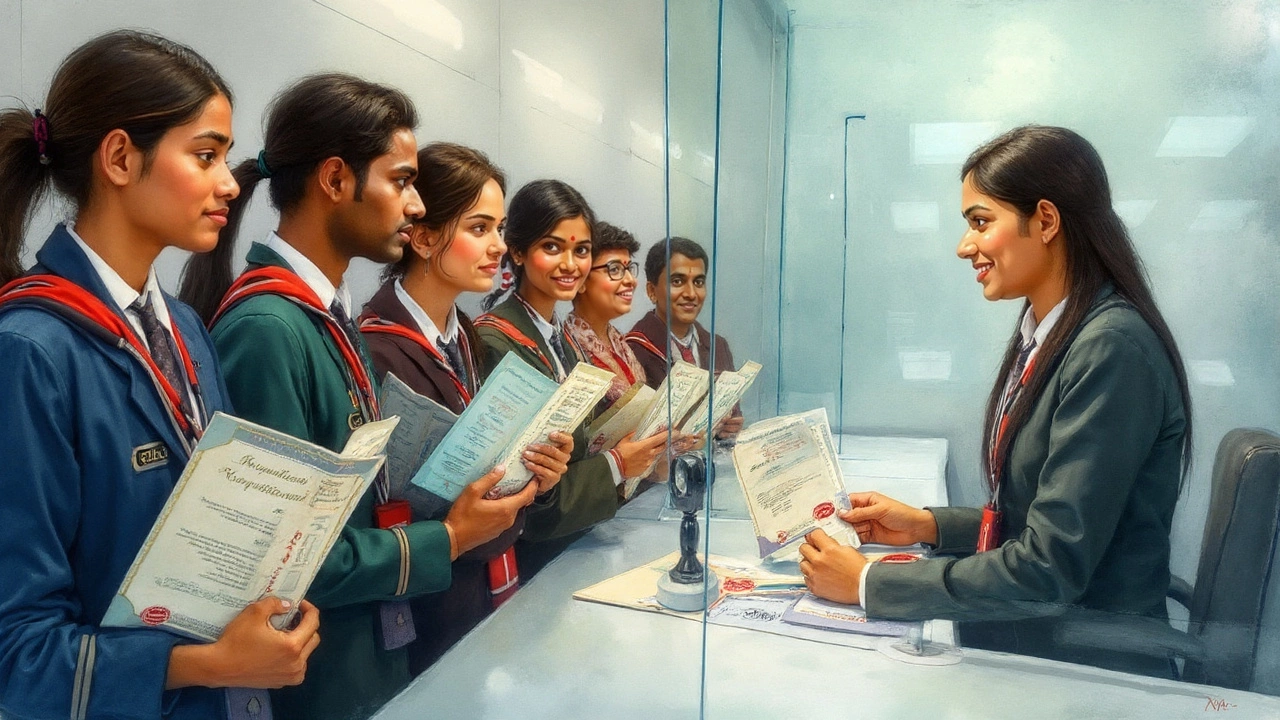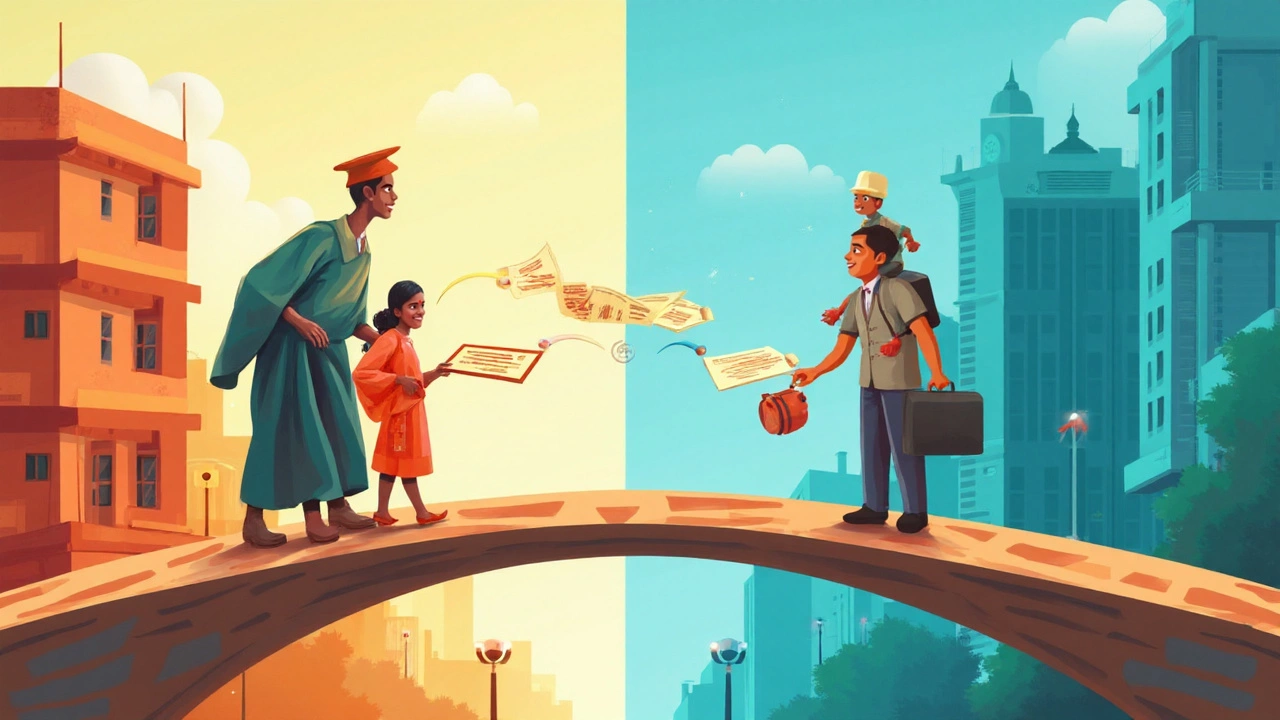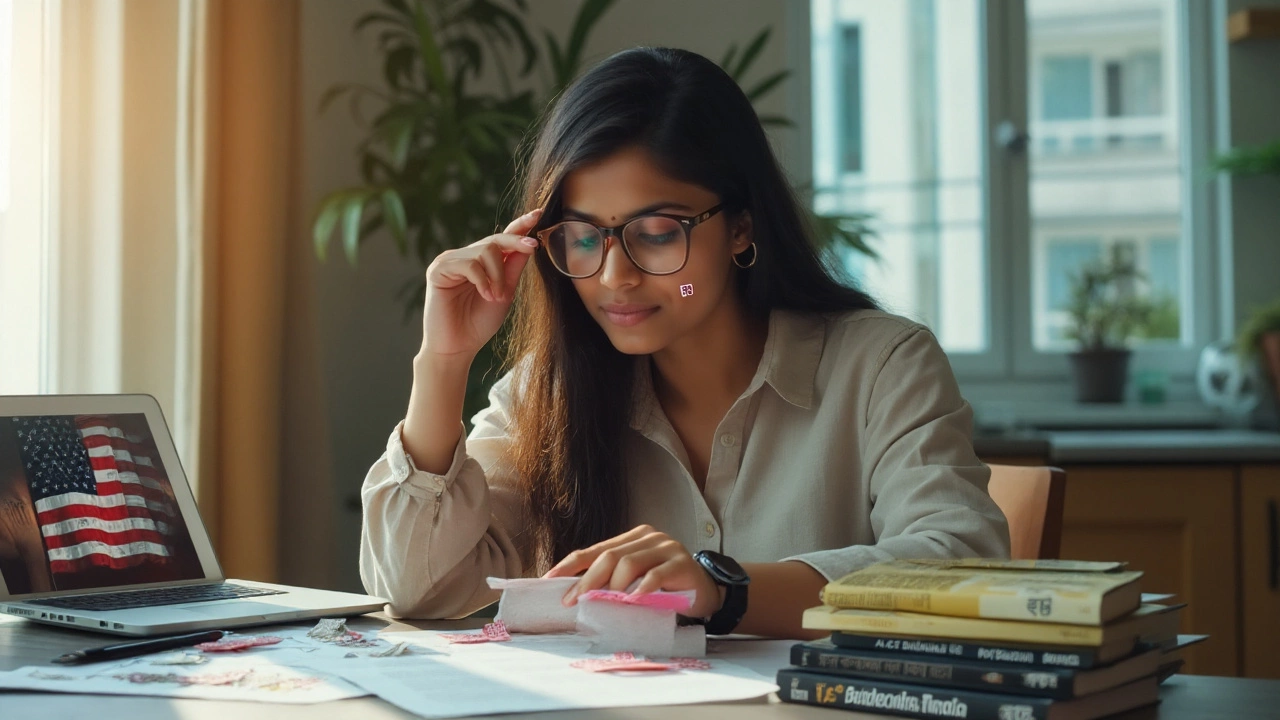How to Legalize a Foreign Diploma in the USA: Step-by-Step Guide & Tips
Just because you nailed that diploma overseas doesn't mean it's instantly valid stateside. Legalizing a foreign diploma for the United States is rarely just a formality. No one likes jumping through bureaucratic hoops, but if you’re hoping to work, transfer credits, or keep studying, you can't skip this part. Some people have been tripped up for years—missing deadlines, courses, and jobs—just because they didn’t get their diploma properly legalized or evaluated. Crazy, right? Let's break down exactly how to make sure your hard-earned degree isn't gathering dust on a shelf.
Why Legalizing Your Diploma in the USA Matters
The U.S. is notoriously strict about educational credentials. They don't just assume your Bachelor's from Madrid or your Master’s from Mumbai stacks up against their own. In fact, every year, thousands of newcomers arrive in the States only to find universities and employers won’t accept their degree at face value. According to a survey by World Education Services (WES), about 40% of immigrants experience trouble getting their credentials recognized. That means fewer job offers, lower pay, and extra schooling you didn’t expect to take. If you’re banking on your diploma for your next move—especially if you’re heading into regulated professions like nursing or teaching—legalization and evaluation aren’t nice-to-haves; they’re a must.
For most places, there's no magic all-purpose acceptance. U.S. employers, licensing boards, and universities will ask for a credential evaluation—usually done by non-governmental but recognized organizations. These evaluators dig into your transcripts, course content, credit hours, and even the reputation of your alma mater. They then translate all that info into a U.S.-equivalent credential, so an employer or university knows exactly what you bring to the table. If your country is part of the Hague Apostille Convention, you can often use an apostille to confirm the document's origin, but this still doesn’t guarantee recognition without a real evaluation.
The Legalization and Evaluation Process Explained
Let’s tackle the actual steps. First off, before you do anything, get all your original academic documents together: diploma, transcripts, and—in some cases—syllabi or course descriptions. Scan them, but don’t send originals unless you’re told to. Losing these could be a headache worth a thousand migraines.
Legalization usually refers to confirming that your diploma is real. The process changes depending on whether your country is in the Hague Convention:
- Hague Convention countries: Just get an "apostille" from your country’s education ministry (or whatever authority does it). This little certificate rides along with your diploma, making it legal for official use in member countries, including the U.S. since 1981.
- Non-Hague Convention countries: The process gets a bit messier. You’ll need to go through consular legalization, getting stamps first from your home country’s education office, then the foreign affairs office, and finally the U.S. Embassy or Consulate. Don’t skip steps or your paperwork can get bounced right back.
Once that’s done, you ship the documents to an official evaluation agency. The big names in this business include World Education Services (WES), Educational Credential Evaluators (ECE), and Josef Silny & Associates. Each agency has its quirks, accepted countries, and fees.
- WES is often picked by folks heading to U.S. universities or looking for tech jobs. Evaluation takes 7–10 days if everything’s in order (rush service costs extra).
- ECE is usually favored for medical and healthcare professions.
- Josef Silny & Associates sometimes handles countries or diplomas the bigger ones won’t touch.
| Agency | Average Cost (USD) | Processing Time | Popular For |
|---|---|---|---|
| WES | $100–$200 | 7–35 days | Tech Jobs & College |
| ECE | $120–$175 | 5–30 days | Healthcare, General |
| Josef Silny | $90–$230 | 10–15 days | Special Cases |
Each agency charges for the evaluation itself, and sometimes by the number of copies or the types of services (a basic equivalency report costs less than a course-by-course breakdown). Don’t wait for a last-minute offer or application—plan several weeks ahead, at the very least.

Which Documents Do You Really Need?
Your diploma alone won’t cut it. U.S. evaluators want to see depth and nuance—after all, a "Master’s" in one country could be just a diploma in another. Here’s what most evaluators want:
- Original or certified diploma (translated if not in English)
- Full transcripts—course lists, grades, credits, years
- Sometimes a degree supplement or syllabus (for tricky or technical degrees)
- Official translations by a sworn translator (if your documents aren’t in English)
- A sealed envelope from the issuing institution, not opened by you, just to prove there’s no foul play
Some evaluators ask for extra things, especially if they can’t find your school in their international database. If documentation is lacking or from a low-profile institution, they may even call or write to your alma mater. A minor hiccup many don’t expect: some schools, especially in countries like India or Russia, will only send transcripts directly to agencies if you pay an extra fee.
Be real about what “official translation” means—it doesn’t just mean Google Translate and a printed PDF. We're talking legal translators, sometimes on an agency’s eligible provider list. If your translation’s sloppy, your evaluation slows to a crawl or gets rejected outright.
Common Issues and How to Avoid Setbacks
It’s easy to fumble this process. Maybe you thought scanning your diploma and firing off an email would be enough. Unfortunately, agencies and colleges are strict, and even small errors—wrong spelling, paperwork not sealed, incomplete credit hours—can lead to months-long delays or outright rejection. In some states, regulatory boards set their own rules and may not accept the results from the same agency as your potential employer.
One way to sidestep trouble: double-check the recipient’s requirements before you even pick an evaluation agency. If you’re applying to a university, see if they require a specific agency—some schools only accept WES, for example. If you’re going for professional licensure, peek at the board’s preferred evaluators and document specifics. When in doubt, call them. Yes, picking up the phone is still the fastest way to get honest answers.
Lost or damaged documents are another pitfall. If you can’t retrieve new originals, see if your school will send digital copies direct to the evaluator (many do, especially after COVID-19 pushed everything online). For rare academic backgrounds, ask an advisor or embassy for backup options.
Watch out for sketchy "diploma mills" or fake evaluation agencies. Real ones are members of recognized organizations such as NACES (National Association of Credential Evaluation Services) or AICE (Association of International Credential Evaluators). Always verify before sending money or personal data.

Tips and Resources for a Smooth Experience
Time can be your enemy or your ally. Start months ahead, especially if you’re applying for a tight-deadline job, a U.S. university, or a visa. Always keep digital and physical copies of every document and translation.
- Many universities accept evaluations valid for several years, so you don’t need a fresh report for every single application.
- If you’re planning to move across state lines later, double-check if your evaluation is portable—regulatory boards can have wildly different standards, especially in careers like teaching or engineering.
- Use the digital credential services provided by evaluation agencies. WES, for example, offers a secure digital badge that can be shared directly with schools or employers.
- Get acquainted with your field’s special requirements. For example, a medical degree from abroad steps through an extra maze with the Educational Commission for Foreign Medical Graduates (ECFMG). Teachers, nurses, and engineers sometimes need state-specific tests or re-training, so the evaluation is just the beginning.
If you’re hoping to maximize your U.S. job offers, it's smart to get a detailed, course-by-course evaluation, not just a basic summary. Employers love details; a few extra classes or credits could boost your standing above other applicants.
For the legalize diploma USA process, don’t rush or try to cut corners. If you feel stuck, local U.S. embassies are usually willing to offer document advice (not evaluations themselves, but at least they can point you in the right direction). Immigrant support nonprofits are another surprising source—they’ve seen all sorts of edge cases and can tip you off if your situation isn’t as unusual as it seems. Plus, online forums and Facebook groups for expats in the U.S. are goldmines for crowdsourced advice. Need a step-by-step checklist? Here’s a handy one to stick on your fridge:
- Gather and scan all original documents (diploma, transcript, etc.)
- Get your diploma legalized (apostille or consular)
- Arrange for professional translation, if needed
- Research and pick an accredited evaluation agency
- Send required papers in the specified formats—follow each instruction to the letter
- Pay agency fees and track your submission
- Receive the evaluation, and keep extra copies (digital and hardcopy)
- Share with universities, employers, or licensing boards
Some universities or jobs almost never ask for this, especially for entry-level roles. But for anything regulated or where credentials really matter, don’t risk guessing. Take half a day, do your homework, and save yourself a world of trouble down the road. Legalizing a diploma isn’t glamorous, but it’s your shortcut to a fair shot in the U.S.





